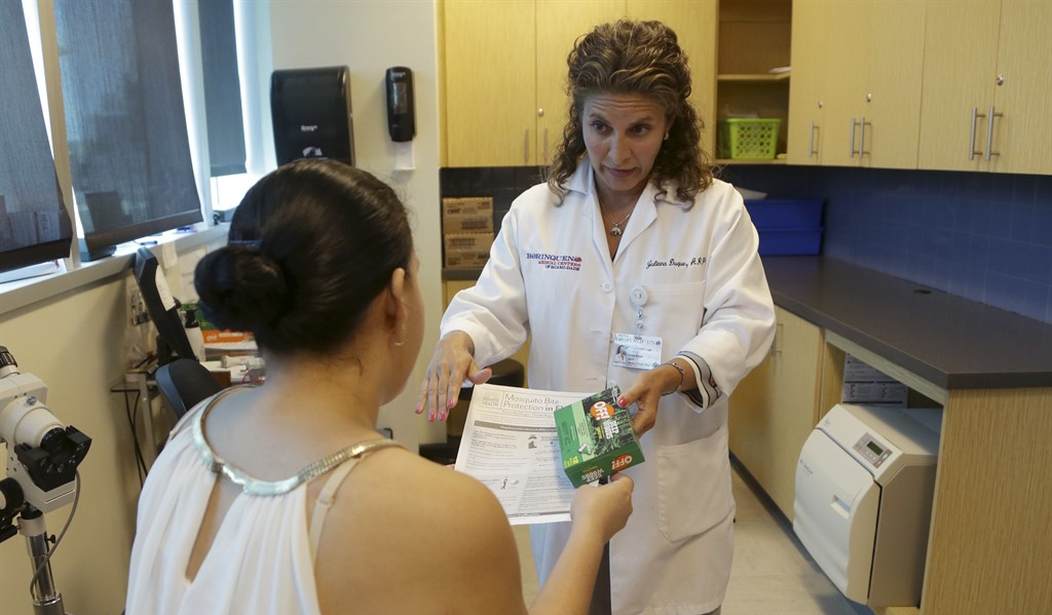The 2017 winner of the Miss USA pageant ignited a firestorm on Twitter when she opined that nobody is entitled to thousands of dollars worth of free goods and services which they did not earn. The tempest in a teapot resulted when Kára McCullough said health care is a privilege, not a right. Her answer was far from perfect; she mentioned that to have health coverage you need to work. One could infer from her answer that she assumes the only way to get coverage is through a job. However, the fallacy that health benefits are a perk for having a job is just that -- a fallacy. Economists generally agree that health benefits are not free; they’re a non-cash portion of employee compensation. That said, Ms. McCullough’s answer was far better than the liberal pablum one would expect to hear from many young people her age. Many Coastal Millennials espouse the knee-jerk idiocy that everyone has a “right” to health care.
Health care is not a right nor is it a privilege; it is a costly service. Health care consumes nearly 20 percent of our economy. Obamacare was premised on the notion society has an obligation to share health care risks and medical costs regardless of health status or ability to pay. After all, the penalty for violating the individual mandate is a “shared responsibility payment.” Go figure: the one time Democrats back individual responsibility is when there is a requirement to buy health plans that nobody would buy absent a subsidy or a coercive mandate.
What is our responsibility to those who are sicker or less able to pay for medical care? This question is more than philosophical. The U.S. Senate is working to hammer out a compromise to the House’s American Health Care Act. At the heart of the debate is how much you believe society should pay for other peoples’ medical care when they are sick or cannot pay.
Americans have been conditioned to think most health care should be paid for by someone other than the patient. This view was likely spawned by government entitlement programs: Medicare for the elderly, Medicaid for the poor and the tax exclusion for employee health insurance. Paradoxically, this view has cost America plenty! According to the 2017 Milliman Health Cost Index, typical families with employee health benefits pay $7,151 in direct employee contributions and pay another $4,534 out of pocket for care. Their employers pick up another $15,259 towards employee health costs.
Recommended
Most working families do not understand that they actually bear their employer’s cost. Employer contributions are just a non-cash form of employees’ compensation. Families realize they are withholding from their paychecks for premiums and accept that cost-sharing is part of the bargain. Yet, I suspect the average working family would start a riot if they really understood they are paying around $20,000 in pretax earnings for half a dozen doctor visits. HR would get sacked and burned by an angry mob of employees. Workers would then demand control of their own health care dollars to prevent those dollars from being sucked into the labyrinth of health bureaucracy.
A better way would be to have young people begin saving so they can fund their own needs when they get older and their health status declines. What if rather than contributing say, $25,000 of workers’ wages for employee health coverage, that money was placed into a tax-free account each family controls? This is the way it works in Singapore. In Singapore, every person is supposed to save for their own future medical needs, while every family is supposed to save for their future medical needs. By contrast, Obamacare is premised on coercing young people into paying double their expected costs so older, sick individuals get a great deal.
The answer to reining in runaway medical costs is to put consumers in charge of the funds. Draining the health care swamp effectively means depriving our health care system of all the cross-subsidies and huge sums of money floating around that nobody seems to have an incentive to manage. If the ocean of funds becomes scarce, health care providers -- doctor, hospitals, drug makers and medical device manufacturers -- will be forced to compete on price and become more efficient. This will only happen when they are no longer awash in other peoples’ money.
Devon M. Herrick, Ph.D. is a health economist and senior fellow with the National Center for Policy Analysis.
























Join the conversation as a VIP Member